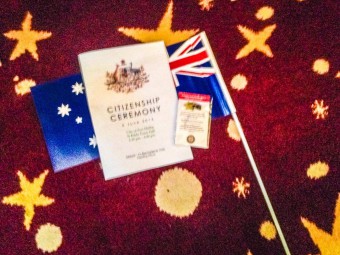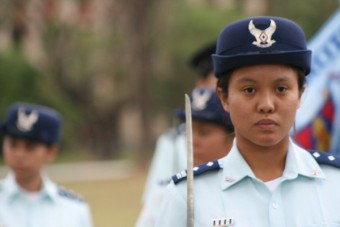By the time this editorial goes live, I will be an Australian.

Literally Australian. Entitled to a passport with kangaroos. Compelled by law to vote. By the end of 2 July 2016, I will have voted in two national elections: the May 2016 Philippine national election, and the Australian federal election. < Insert something about endings and beginnings, transnationalism and border-crossings, the (post)modern-day savageries of the Philippine President-elect’s regard for women and journalists, and the way asylum seekers in detention and Aboriginal people in custody are treated by the Australian government, how “Asia” and “Australia” can sometimes feel like the same place. >
In our call for submissions, we asked for people to weigh in on the idea of “Asians to Watch Out For.” We had a tiny submission window, and the inbox was swamped. Talk about yellow peril! A large number and variety of submissions came in, especially for prose. And why not? There were many ways to approach the theme. Who counts as “Asian” today? What does it mean to “watch out” for someone, in general, and for “Asians” in particular? Who does the watching, and why? How is the watchful gaze returned?
Commentary on current #Dangerasian events in Australia and beyond feature amongst the prose contributions to this edition. The borderlessness of the Internet has brought together a dazzling array of pithy quotes and images, clustered under Twitter hashtags demanding more frequent and more thoughtful Asian representations on screens and on stage. Amena Ziard, co-presenter of the Race Card podcast, discusses the potentials and limitations of hashtag activism in her piece “Hashtagged: the campaign for Asian representation.” Following the Literary Commons gathering in April, Jasmeet Sahi’s poignant contemplation on studying Indigenous Australian poetry in an Indian university shows how the final word about “diverse publishing” has yet to be written.
Calls to action can sometimes feel smarmy and obnoxious. The calls to action you’ll find in this edition are anything but – more coaxes, really, than blaring drumbeats. Asian-Kiwi artist Amy Weng invites readers to see the similarities in the way Asian-Kiwis and Asian-Kiwi art is seen across the Tasman Sea. Perth-based academic Susan Leong explores the weak links between folks of Chinese descent who grew up in different countries, making a case for solidarity, however fragile or fleeting.
Reviews by publicly engaged scholars are also present. In 2015, Griffith Review launched “New Asia Now”, a print and online volume compiling work on Asia by Asian movers and shakers under 45. Dr Elaine Laforteza of the University of Technology Sydney, herself a contributor to the online volume, assesses the significance of this project for Australian publishing and Australian readers, describing publishing efforts such as this as a way of creating solidarity between thinkers, readers, and writers from both continents. Manuela Zehtner from the University of Bonn reflects on the enduring significance of Tom Cho’s first short story collection Look Who’s Morphing.
Taking steps to be recognised differently, and to take up space in unusual places, is no small accomplishment. Brisbane-based crime novelist Mirandi Riwoe ponders the characterization of Asians as sinister and strange in Victorian crime fiction, and explores how Asian characters might be reimagined. Canberra writer Shu-Ling Chua writes candidly about her difficulties in navigating sex, consent, and pleasure as a young Chinese-Australian; her take is smart and sensitive, with none of the self-pitying plaintiveness that characterizes less skillful life writing. Xen Nhà takes a sober look at what it feels like when em becomes aware that white men are fetishising ems “Asianness”; em writes of how Asian women can push back against this fetishisation without devoting all their lives to desperate firefighting, at the cost of time spent doing what pleases them.
The sole work of fiction in this edition was written by a Year 11 writer. Thisuri Weerasinghe’s short story takes multiple perspectives of a single scene at the Southern Cross Station’s Hungry Jacks in the Melbourne CBD. When I first read it, I thought, “This work feels unusually nuanced, not something I’d expect from one so young.” Then I realised what a philistine thought that was. Many young people think deeply and passionately about their lives, their relationships, and the broader political community in Australia and the world, but there aren’t always many willing audiences to whom they can articulate their thoughts. I hope the inclusion of her moving, beautifully written short story makes Peril feel like a hospitable place for younger Asian-Australian readers and their friends, parents, and teachers.
~
So, I’ve been Australian for five days now.
I haven’t told my family and most friends in the Philippines. Soz folks, if this is the first time you’re hearing about this. Citizenship – and citizenship turncoatism – is taken seriously in the upper-middle-class circles where I grew up. Filipinos who have immigrated elsewhere are often envied by those they’ve left behind. The latter think any place outside the Philippines, especially first-world countries like Australia, must be clean, traffic-free, well-governed paradises that rain dollars over all new souls. Filipinos based overseas are often made to feel like all they’re good for is their remittances; but by leaving the long-suffering motherland for brighter economic opportunities elsewhere, they’ve signed away their rights to political opinions, about either their host countries (that have welcomed and blessed them with employment and income, for which they should be grateful), or their former home (that they have forsaken, never mind the many varied reasons for leaving).
I still remember the older, longer pledge of allegiance I recited in my Catholic primary school in Manila, a document produced in 1955, which we recited everyday for most of my childhood. How can one fail to understand citizenship in terms of fidelity and betrayal if that is how one has been indoctrinated since one’s most tender years:
Iniibig ko ang Pilipinas. Ito ang aking lupang sinilangan. Ito ang tahanan ng aking lahi. Ako’y kanyang kinukupkop at tinutulungan. Upang maging malakas, maligaya at kapakipakinabang. Bilang ganti, diringgin ko ang payo ng aking mga magulang. Susundin ko ang mga tuntunin ng aking paaralan.
Tutuparin ko ang mga tungkulin ng isang mamamayang makabayan at masunurin sa batas. Paglilingkuran ko ang aking bayan nang walang pag-iimbot at ng buong katapatan. Sisikapin kong maging isang tunay na Pilipino sa isip, sa salita, at sa gawa.
I love the Philippines. It is the land of my birth. It is the home of my people. It protects me and helps me to be strong, happy and useful. In return, I will heed the counsel of my parents; I will obey the rules of my school; I will perform the duties of a patriotic, law-abiding citizen; I will serve my country unselfishly and faithfully; I will be a true Filipino in thought, in word, in deed.
It’s hard not to feel like a traitor. Never mind that when I first came here as an international student on 27 May 2010, at 24, during the first international trip of my life, I had always intended to go back to the Philippines. I was going to be a lecturer in the Philippines after finishing my PhD overseas, like so many of my former lecturers and professors.
Then, my father died. And it made more sense to stay in Melbourne, where my scholarship income and casual academic wages made it possible for me to reduce the financial strain on my widowed mum and my younger brother studying music. I could now do the classic Filipino immigrant move, sending money home when needed. Never mind that the weather was starting to turn, and autumn and winter nights were harder still when I mourned my father’s death, alone in a new country.
Things are better now. My fiancé made it from Manila to Melbourne. I used to support him financially, and now he’s the breadwinner, freeing me to do low-paid, occasionally satisfying work in the arts. I haven’t finished my PhD yet, but I still have the stomach for it, however slow the work feels sometimes.
I never thought I’d be the kind of Filipino that stops being Filipino and becomes something else. I served in the military during officer-track national service, throughout the four years I was doing university study for my bachelor’s degree. Because I was tall, I was often a flag-bearer in the Colour Guard during high-profile university events. It’s hard not to have strong feelings about citizenship when one has served in the military; harder still, if you’ve held the nation’s colours as they flew.

I was quite morose in the weeks leading up to the citizenship ceremony, the final crossing of the Rubicon from which there would be no turning back. My husband stayed home from work that day, to make sure I wouldn’t suddenly lose heart. I was so sure I’d fold into a sobbing heap at some point during the ceremony. I took precautions so my husband would have back-up as my Emotional Guard: I invited the lecturer who gave me my first Australian academic job, and a former first-year student who has since finished his degree – people who’ve seen me at my best and my worst, who have now witnessed the oddest hour of my life.
I did come close to tears when I recited the Australian pledge of allegiance. It felt a little like losing something. I am now less sure about what that was.
There was no big emotional breakdown, no final, cathartic exclamation point to seal the deal on the citizenship I lost.
My husband told me that even though I only became Australian that evening, I had become Filipino-Australian long before that day. (He used to say that with far more bitterness, telling me, when he first moved here, that he barely recognised me, that I was so different to what I used to be.)
I thought about the things I had done since coming to Melbourne: gained a taste for flat whites and soy magics, traded my “z’s” for “s’s” and trained my ear to appreciate the soft “r”, raised funds for Australian non-profits, mentored Australian undergrads, partied like I was single and broke some Australian hearts, briefly lived the hipster dream in Berlin and Barcelona, modelled as an artistic nude east, west, north and south of the Yarra, been mistaken for a homegrown Australian in America. And guest-edited an Asian-Australian arts and culture magazine, working with writers who have been Australian for far longer than I.
I don’t know what if this is what it means to be Australian.
I can only know – and keep working on – what being Australian means to me.

